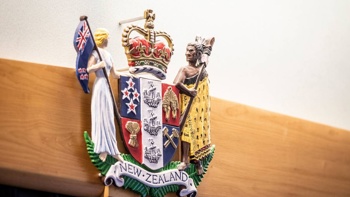Health officials have today reported 14,128 new community cases of Covid-19 and five Covid-related deaths.
There are 943 people in hospitals around the country, including 25 in intensive care.
The five deaths reported today were in Auckland, Waikato, Hutt Valley and Canterbury.
In Auckland, there are 3498 Covid-19 cases and 616 people in hospital with 10 in ICU.
Northern Regional Health Coordination Centre's associate chief clinical officer Dr Anthony Jordan and vaccinologist Helen Petousis-Harris are outlining the national and regional daily case numbers, hospitalisations and the latest information on boosters.
Jordan said getting boosted reduced your likelihood of passing Covid-19 on to others.
The current rate of boosters in Auckland was lower than what he preferred but he said community partners were rallying once again to get people boosted.
Yesterday there were 19,566 new cases, with 930 people in hospital. Of these there were 23 people receiving ICU or HDU level care.
There were 199,645 active community cases in the country.
Schools affected
The Education Ministry yesterday revealed that there were 64,500 cases in school, kura and early childhood centres in the past 10 days. Three in four New Zealand schools were now dealing with active Covid-19 cases with close to all schools in Taranaki, Whanganui, and Manawatū impacted by the outbreak.
Current data shows Hutt Valley DHB and Capital and Coast DHB are second and fourth for regions with the most active cases per 100,000 people.
At the same time experts are optimistic Auckland has passed its peak.
Old said case numbers in Auckland had continued to track downwards, confirming the region had passed its peak for case numbers, which were expected to decline in coming weeks.
With new hospital admissions appearing to plateau, Old said he hoped hospitalisations would turn a corner over the next week.
However, pressure continues to mount at the region's hospitals with hospitalisation rates remaining high and staffing numbers below ideal levels.
Deaths rise
Yesterday, there had been 151 Covid-related deaths since the outbreak hit our shores two years ago. The majority of deaths have happened in the past month. The Ministry of Health reported 10 new deaths. One of those who died was in their 30s.
New data showed that Māori, who make up 17 per cent of the population but 24 per cent of cases, were disproportionately represented, making up a quarter of all deaths nationally and nearly half were under 59.
People over the age of 70 made up more than half of Covid-related deaths since the beginning of the pandemic.
Returning to normal
This morning Attorney-General David Parker signalled New Zealand would be returning to normal faster than people might imagine given the Omicron outbreak had not overwhelmed the health system.
"Next week we will be making announcements on what happens to vaccine certificates and vaccine mandates.
"So as we pass through the Omicron peak I've got some confidence that we're going to return to normality probably faster than people expect," Parker told the AM show.
Yesterday the Prime Minister said the traffic light settings, mandates and vaccine passes were on the table for discussion by Cabinet with a decision on their future expected in the coming week.
"We have already indicated that as we come down, off our peak of Omicron, that we will be re-looking at everything from mandates, the vaccine passes - which we don't believe will need to be used as widely anymore - and we will also be looking at all of the settings within the traffic light."
The country is at the red traffic light setting of the Covid-19 Protecting Framework, which came into force on December 3 to replace the alert level system.
New Zealand moved to red on January 24 after fears Omicron could be circulating in the community.
Take your Radio, Podcasts and Music with you









